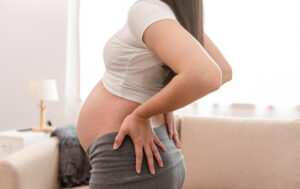Women need extra calories during gestation to support the baby’s growth and development; however, some expecting mothers may crave foods which could harm the developing fetus.
Avoid eating raw meat and fish as well as unpasteurized dairy products, and stay away from foods high in mercury or salt content.
Protein
Many pregnant women are advised to consume foods rich in proteins, folate (folic acid), choline and vitamins A, B6, C and E during their pregnancies, such as whole grains, legumes, fruit and vegetables as well as prenatal vitamins to meet daily recommended amounts of folate, iron and calcium.
Protein-rich foods such as poultry, fish, eggs, nuts, peanuts and beans provide your baby with essential building blocks for development. Women should aim to incorporate these foods at least twice weekly into their diet as these sources provide vital protein, calcium and choline necessary for bone development in utero.
Avoid processed food, high-fat snacks and sugary beverages that contain empty calories to avoid bloating and heartburn and possibly contributing to excess weight gain during gestation.
Folic acid is an essential nutrient to helping women prevent birth defects of the brain and spine known as neural tube defects, also called “birth defects of neural tubes.” A pregnant woman should consume an array of folic-rich foods during their pregnancies such as fortified products like bread and cereals as well as leafy green vegetables and citrus fruits for maximum benefit. Calcium also plays an essential role in teeth and bone development for your baby and can be obtained via sources such as dairy products, kale, beans & peas or even fatty fish!
Vegetables
A healthy pregnancy diet includes lean meats, fruits and vegetables as well as complex carbs derived from whole grains. Healthy fats and fiber should also be part of this plan; highly processed foods high in sugar or fat content should be limited during gestation to help avoid excessive weight gain.
Vegetables provide essential vitamins, minerals, and fiber to the health of you and your baby. Some key sources include Vitamin A (found in leafy greens and sweet potatoes) and iron (found in meat, pork, poultry, legumes and fortified cereals); it’s best absorbed when taken from animal sources as well as fortified cereals; Vitamin C plays an integral part in iron absorption which can be found in orange juice, citrus fruit or strawberries.
Calcium and Omega-3 fatty acids are also essential nutrients during gestation. Dairy products such as yogurt and cheese provide ample calcium; alternative sources for calcium may include dark leafy vegetables, sesame seeds, chia seeds or nuts like almonds.
Omega-3 fatty acids can play an integral part in your baby’s brain and eye development. You can get them from fish such as salmon, trout or canned light tuna; alternatively you could also take prenatal supplements.
Dairy
An optimal pregnancy diet must include proteins, vegetables, whole grains and fruits for both mom’s health and that of her developing baby. Certain food and beverages (like alcohol and some cheeses ) may have adverse effects on this aspect.
Diet is an invaluable way to combat many pregnancy discomforts, from heartburn and digestive complaints like constipation to constipation itself. A diet rich in vegetables, legumes and fruit will help alleviate constipation issues, while those prone to heartburn should try eating smaller meals more frequently while limiting spicy or acidic foods or beverages like carbonated drinks; some pregnant women find dairy products such as yogurt helpful when dealing with their heartburn symptoms.
Dairy products provide an invaluable source of calcium, an essential mineral essential for supporting bone and teeth development in babies. Milk, almond milk and other non-dairy alternatives, such as broccoli, garbanzo beans and kale all provide calcium-rich sources of sustenance for your baby’s bones and teeth development.
Fats are an essential component of a prenatal diet, providing energy for both Mom and baby. But you should limit how much fatty meats and oils you eat since these can lead to excessive weight gain. Choose lean proteins like skinless chicken and turkey over red meats like steak; as well as plant-based oils like olive, canola or safflower oil instead of animal products like butter.
Fat
Pregnancy can leave you overwhelmed with advice for what foods to eat, often from family and friends. It is wise to avoid diets high in saturated fat and added sugar; additionally, processed foods tend to lack essential vitamins and nutrients and increase the risk of weight gain and heart disease.
Your diet should consist of vegetables and fruits, proteins from animal sources such as poultry, fish and beans; whole grains; healthy oils (olive, canola or safflower); as well as dairy. Try to consume at least 2 to 2.5 cups of vegetables daily as well as at least two cups of fruit (fresh frozen or canned); also aim to include at least three servings of dairy products each day.
Protein should make up between 12-20 percent of your total caloric intake. To reach this target, consume 0.8 grams per kilogram of your bodyweight (to convert from pounds to kilograms divide by 2.2). Be sure to incorporate lean meats, eggs, whole grains, beans and other protein-rich foods into your diet for best results.
Eating enough calcium-rich foods like yoghurt and cheese can help prevent bone loss. You could also consider non-dairy options like soy yoghurt or milk as well as calcium-fortified cereals as they could help you overcome an aversion to dairy.





